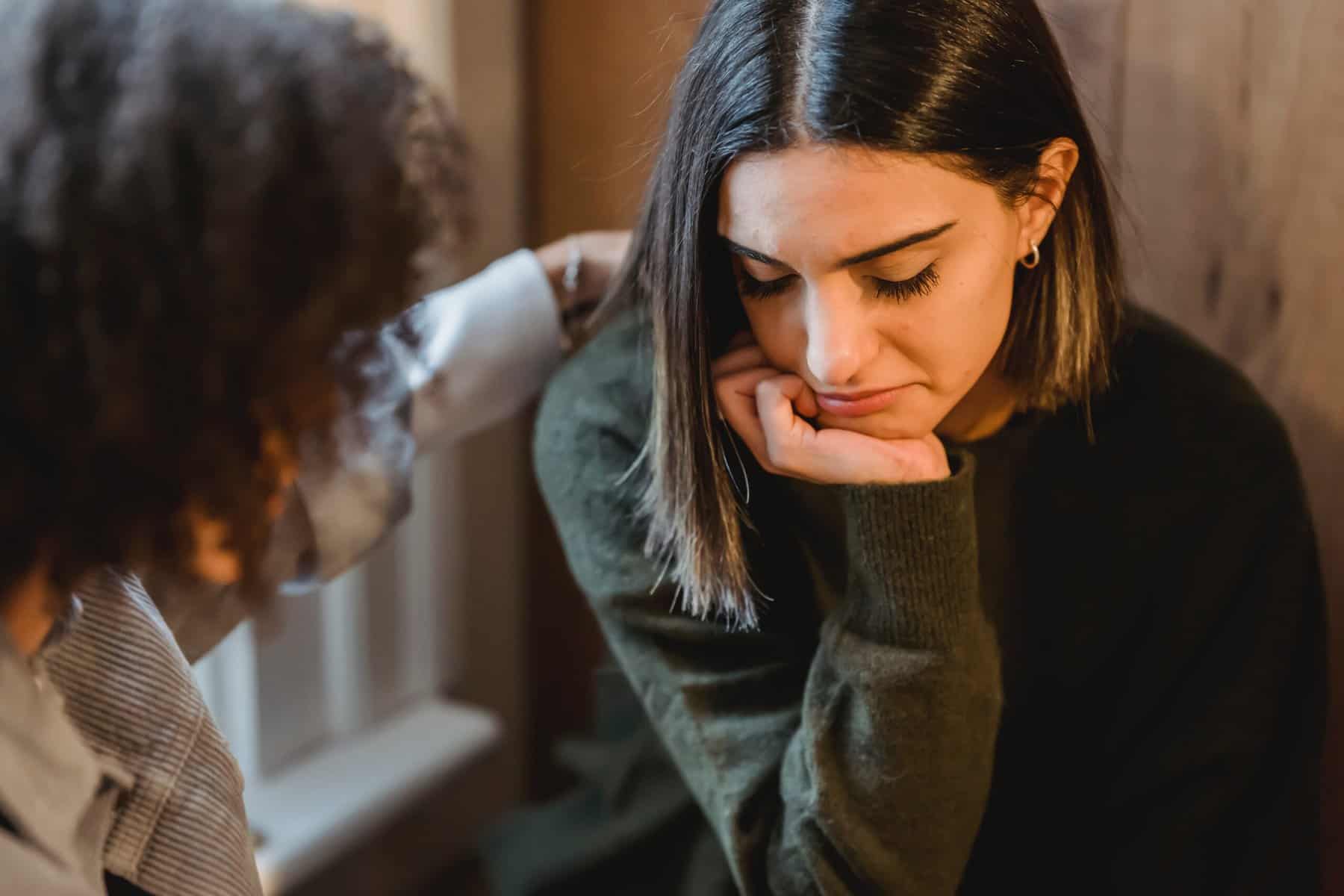What Is the Root Cause of Social Anxiety?
Social anxiety disorder is one of the most common mental health disorders in the United States, with an estimated 15 million adults affected. But what is social anxiety disorder, exactly? And what is the root cause of social anxiety?
In this article, I will explore the definition of social anxiety and look at some of the theories on its causes.
Learn more: What Are Anxiety Disorders?
What is Social Anxiety
We have all probably experienced social anxiety at some point or another, whether it be public speaking in front of a large group, feeling anxious around new coworkers or classmates, feeling uncomfortable at a party surrounded by strangers, etc.
However, if your social anxiety is so severe that it significantly impacts areas of your life such as work, school, relationships, health, etc., you may actually meet the criteria for a diagnosis of social anxiety disorder (formerly known as social phobia).
The Diagnostic and Statistical Manual of Mental Disorders, Fifth Edition (DSM-5), lists the following criteria for social anxiety disorder:
- Fear or anxiety towards one or more social situations where the individual is open to possible judgment by others. For instance, this could be during social interactions (e.g., having a conversation, meeting new people), being observed (e.g., eating or drinking), and performing in front of an audience (e.g., giving a speech).
- The individual is concerned that he or she will behave in a manner that will be looked down upon by others (i.e., it would be embarrassing; it would lead to being alone/not accepted by others).
- Being in social situations usually leads to feeling fear or anxiety.
- The fear or anxiety elicited by the social situation is greater than the actual threat posed and/or by the sociocultural context.
- Social situations are often met with fear or anxiety by those who suffer from social anxiety disorder.
- The fear, anxiety, or avoidance creates significant distress or prevents normal functioning in social, occupational, or other important areas.
- The fear, anxiety, or avoidance generally lasts for 6 months or more.
- The fear, anxiety, or avoidance is not caused by the physical effects of a substance (e.g., a drug) or another medical condition.
Gee, that sounds like a lot of fun!
While there are other factors to consider specifically for children, this article will focus primarily on adults.
Severe social anxiety can feel like a nightmare, significantly impacting your quality of life. It may take away your sense of freedom and independence to do things that you want to do in life, and make you feel depressed (depressive disorders are commonly associated with social anxiety).
So what’s the cause of all of this? Why are you like this? How did you end up like this?

What Is the Root Cause of Social Anxiety
It seems that both nature and nurture play a role in developing anxiety disorders. If you have family members with anxiety disorders, you may be more likely to develop one yourself. However, it appears that environmental factors contribute significantly.
Anxiety is something we learn by and large. Therefore, the root cause of social anxiety typically stems from lessons or experiences that we had early on in life.
Past and Childhood Experiences
Your past experiences, whether from childhood or adulthood, have a great deal of influence on who you are today.
Experiences during crucial stages of life can sometimes lead to anxiety disorders later in life. Stressful and tragic events that occur early on can have a significant effect on us as we grow older.
Examples of experiences or events that can cause anxiety disorders are:
- Physical, emotional, and sexual abuse
- Childhood neglect
- The loss of a close family member (such as a parent or sibling)
- Being bullied or feeling left out by your peers in school
- Excessively protective or controlling parents
While there are various other potential causes, these are some of the more common ones. If you experienced trauma or anxiety in childhood (oftentimes with good justification), it can remain with you into adulthood if left unresolved.
We’re often taught from a young age to be vigilant as the world can be a dangerous place. However, even though we may not always encounter perilous situations (i.e., public speaking, meeting new people, etc.), these early experiences can tell our mind and body subconsciously that we are under threat when there is none. We tend to think of a situation as dangerous when it really isn’t.
Things That Can Exacerbate Social Anxiety
Social anxiety can be further exacerbated by situations in your current life:
- A build-up of stress or exhaustion
- A significant life change (e.g. new job, divorce, moving to a new home, etc.)
- Pressure at school or work
- Working long hours
- Unemployment
- Financial problems
- Loss of a loved one
- Loneliness and isolation
- Physical, verbal, or sexual abuse
- Being bullied or harassed
- Substance abuse or withdrawal
- Health problems
- Side-effects of medications

Are You Born With Social Anxiety
No, social anxiety is not something that you are born with. It usually develops over time as a response to certain life experiences and events. For example, if someone has experienced embarrassing or traumatizing moments in the past, it can cause them to develop an irrational fear of similar situations happening again in the future. Social anxiety disorder can also be caused by other underlying issues such as low self-esteem, negative beliefs about oneself or one’s environment, and abuse or neglect.
What Childhood Trauma Causes Social Anxiety
Childhood trauma that can lead to social anxiety can come in many forms. It may include physical or sexual abuse, neglect, traumatic events such as natural disasters, the death of a loved one, prolonged separation from a caregiver, bullying, or other forms of significant distress. These experiences can disrupt the development of normal coping skills and lead to feelings of fear, shame, and isolation that can interfere with social interactions. Additionally, children who experience chronic stress may be more likely to become socially anxious in adulthood. It is important to note that not all people who experienced childhood trauma will develop social anxiety, but it is a risk factor for developing the disorder.
How Can I Reduce Social Anxiety
There are a few simple things you can do to reduce social anxiety and feel more comfortable in social settings.
- Practice deep breathing: Deep, slow breaths can help ease your mind and reduce physical symptoms of anxiety such as tense muscles and a racing heart rate. When you’re feeling anxious in a social setting, try taking slow, deep breaths and focusing on the air moving in and out of your body.
- Connect with others: It can be hard to do when you’re feeling anxious, but connecting with other people is one of the best ways to combat social anxiety. Talk to someone about what you’re going through, or just make small talk with another person. This can help you feel less alone and more connected to the people around you.
- Exercise: Exercise releases endorphins, which are natural mood boosters that can help reduce stress and anxiety. If your social anxiety feels overwhelming, take a break from the situation and go for a walk or jog to clear your head.
- Challenge your negative thoughts: Social anxiety can be caused by the way we think about ourselves and the people around us. Pay attention to your thoughts, and challenge them when they are unhelpful or untrue. Replace these negative thoughts with more positive ones that help you feel more confident.
- Seek professional help: If your social anxiety is severely impacting your life, it can be helpful to seek professional help. A therapist or counselor can work with you to increase your comfort in social situations and manage your symptoms.
By following these steps, you can reduce your social anxiety and feel more confident in a variety of situations. For best results, practice these strategies regularly so that they become second nature. With time and patience, you’ll be able to enjoy social situations again.
How Do You Treat Social Anxiety
There are many ways to treat social anxiety, but the most important thing is to find the treatment that works best for you. Some people may benefit from medication, while others may prefer therapy or self-help treatments. Some may benefit from a combination of all of the above. There are also a number of lifestyle changes you can make to help reduce your anxiety levels.
Therapy
Cognitive behavioral therapy (CBT) is a form of psychotherapy that helps people to change the way they think and behave in order to reduce anxiety. Through this therapy, people can gain a better understanding of their anxiety and learn new coping strategies. CBT is the most widely used form of therapy used to treat social anxiety and patients can oftentimes see a significant change in their lives after several weeks or months. However, everyone’s situation and circumstances are different, so results can vary.
Medication
Certain types of medication, such as selective serotonin reuptake inhibitors (SSRIs), can be helpful in reducing the symptoms of social anxiety. Antidepressants may also help to reduce feelings of nervousness and fear. Anti-anxiety medications (anxiolytics) can be effective but can also be addictive and should be used with caution. Consult with a psychiatrist or your primary care physician.
Self-Help
Many people find it helpful to practice relaxation techniques, such as progressive muscle relaxation or deep breathing exercises. Mindfulness meditation can also help to reduce stress levels and increase awareness of the present moment. Other self-help strategies include increasing social activities, keeping track of anxiety triggers, and learning to challenge anxious thoughts. A therapist can also assist in teaching you these methods and these techniques are often incorporated into therapy, such as CBT. There are also many resources on the internet and YouTube as well as many books on social anxiety that can be helpful.
Lifestyle Changes
Making healthy lifestyle changes can help to reduce stress levels and improve overall well-being. Regular exercise, getting enough sleep, eating a balanced diet, reducing alcohol consumption, and limiting exposure to caffeine can all help to reduce anxiety. Additionally, it is important to practice self-care and find healthy ways to manage stress levels.
No matter what treatment approach you choose, it is important to stay committed and open-minded. With the right support, you can learn how to effectively manage your social anxiety and live a more fulfilling life.
If you are having significant difficulty managing your anxiety where it severely impacts areas of your life (e.g. work, school, relationship, health, etc.), it is important to reach out to a mental health professional for help. A therapist can provide guidance and support as you work through treatment. Together, you can create a plan that best suits your individual needs and goals. With the right treatment, social anxiety does not have to be a lifelong struggle.
Conclusion
Social anxiety can be a debilitating condition that impacts many areas of our lives. However, there are many ways to treat social anxiety, and with the right support, we can learn how to manage our symptoms effectively. In this article, I have discussed some of the root causes of social anxiety and outlined some of the most common treatment approaches as well as some helpful lifestyle changes you can make to reduce your anxiety levels. I hope you find this information useful and encourage you to reach out to a trained mental health professional for help if needed.
